The content on this website is for informational purposes only and is not meant to replace professional or medical advice. See our full disclaimer.
If you're a parent of an ADHD kid, you're well aware of the daily challenges and triumphs that come with it. But did you know that learning more about ADHD parenting and coaching can be a game-changer?
It's all about understanding your child's unique brain wiring and helping them succeed.
This blog post will cover 25 ADHD parenting tips about challenges your ADHD kids may face. Most of these tips provide links to detailed resources with additional information to help improve your child's behavior and well-being. Let's get started!
Jump to:
- Why it Matters
- About Your Child's ADHD
- Executive Functions
- ADHD and Executive Age
- The Science Behind the ADHD Brain
- Wellness Approaches
- Supplements and Diet
- Gut Health
- MTHFR Gene Testing
- ADHD Medications
- Free ADHD Parenting Resources
- Free Emotional Scale
- Free Meditation Exercise Cards
- Printable Routines
- Free Daily Planner
- Challenges ADHD Children Face
- Task Initiation
- Emotional Regulation & Meltdowns
- Social Anxiety
- Overthinking
- Mental Health
- ADHD and Lying
- Hyperactivity
- Impulsivity
- Working Memory
- Attention and Focus
- ADHD Coaching for Parents
- Coaching Yourself
- Behavioral Parenting Training
Why it Matters
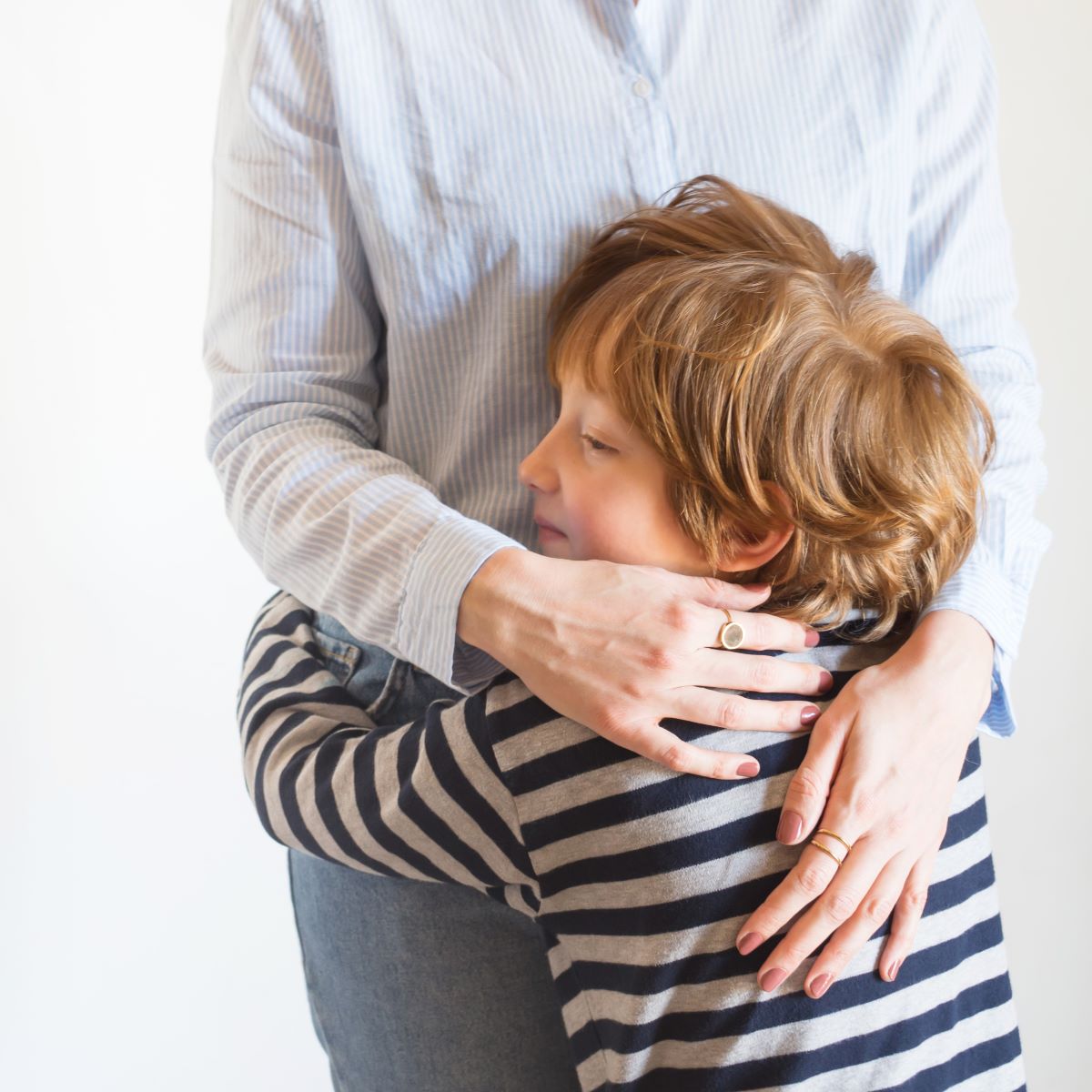
When we're parents to a child with ADHD, we need to understand the condition.
This knowledge isn't just about managing symptoms or guiding behavior - it's about nurturing your child's sense of self-worth. Many children with ADHD grow up feeling like there's something wrong with them.1https://www.healthline.com/health/adhd/adhd-and-self-esteem These feelings can contribute to mental health issues like depression, social anxiety, and overall unhappiness.
What can you do as a parent?
- Get Informed: Learn about ADHD from reliable sources. Understand its symptoms, how it's diagnosed, and the strategies that can help manage it.
- Be Proactive: If you think your child has ADHD, don't wait in helping them. This doesn't mean you must get a formal diagnosis right away, but you can start implementing the strategies discussed in this blog post.
- Make a Happy Home: Home should be a place where your child feels loved and understood. This involves recognizing their struggles and validating their feelings.
- Talk About ADHD: When your child is old enough, talk to your child about ADHD so they understand the way their brain is wired. They should know it's okay to be different. Our goal is to help our child not just deal with ADHD, but to be happy and successful.
About Your Child's ADHD
As a parent, it can be difficult to accept that your child has different needs than neurotypical children.
But ADHD influences how your child thinks, works, and interacts with the world. Here's a closer look at some key aspects:
Executive Functions
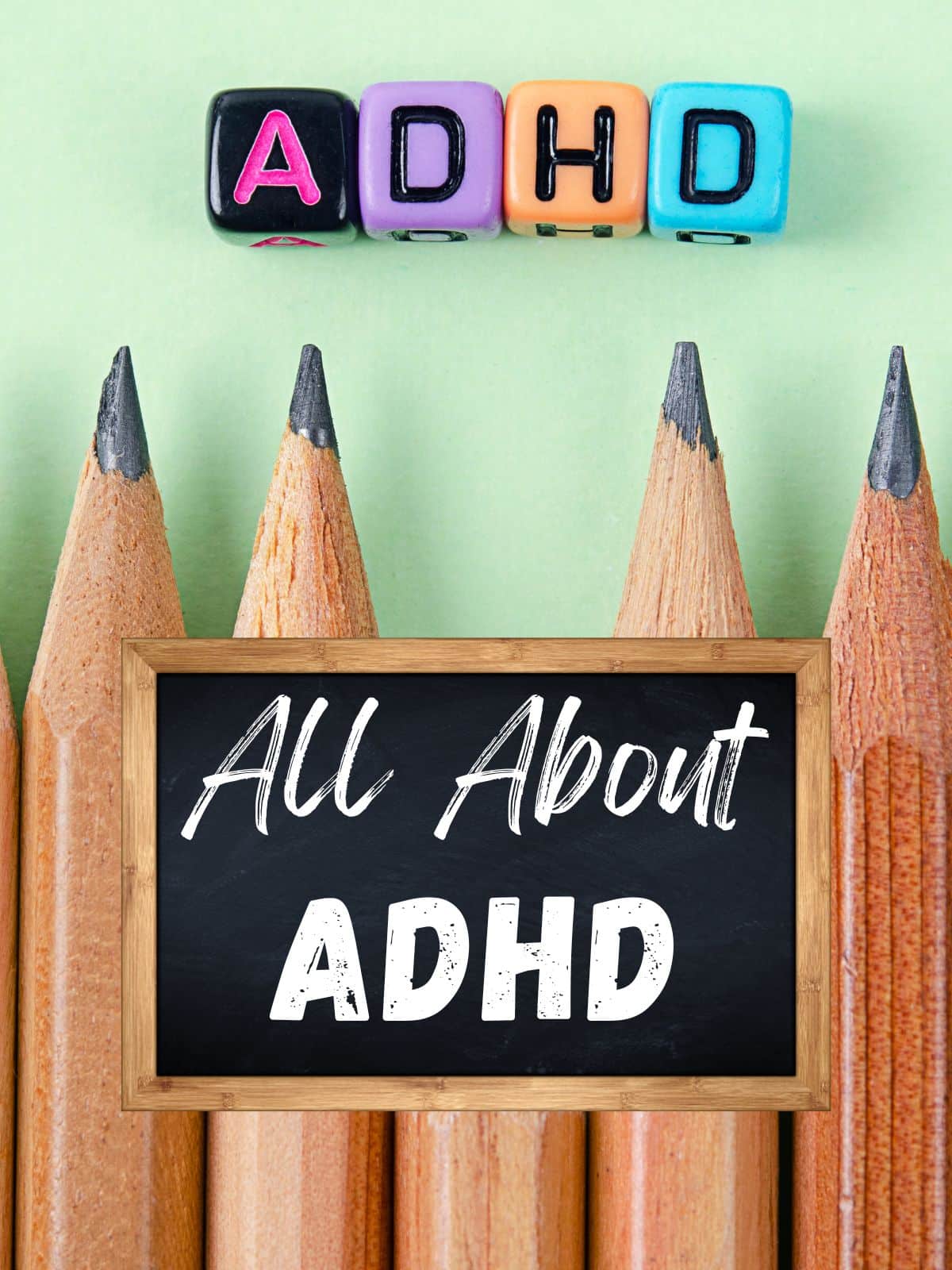
These are the brain functions that help us manage time, pay attention, and switch focus. Executive functions also help us plan and organize, remember details, and avoid saying or doing the wrong thing.
What can you do as a parent?
- Provide structure and daily routines.
- Learn more about your child's needs through ADHD parenting books and resources.

- We especially love Dr. Russell Barkley's book on ADHD parenting.
- Keep track of your child's symptoms and provide positive reinforcement.
- Develop a system your child enjoys, meaning they are likelier to stick with it.
ADHD and Executive Age
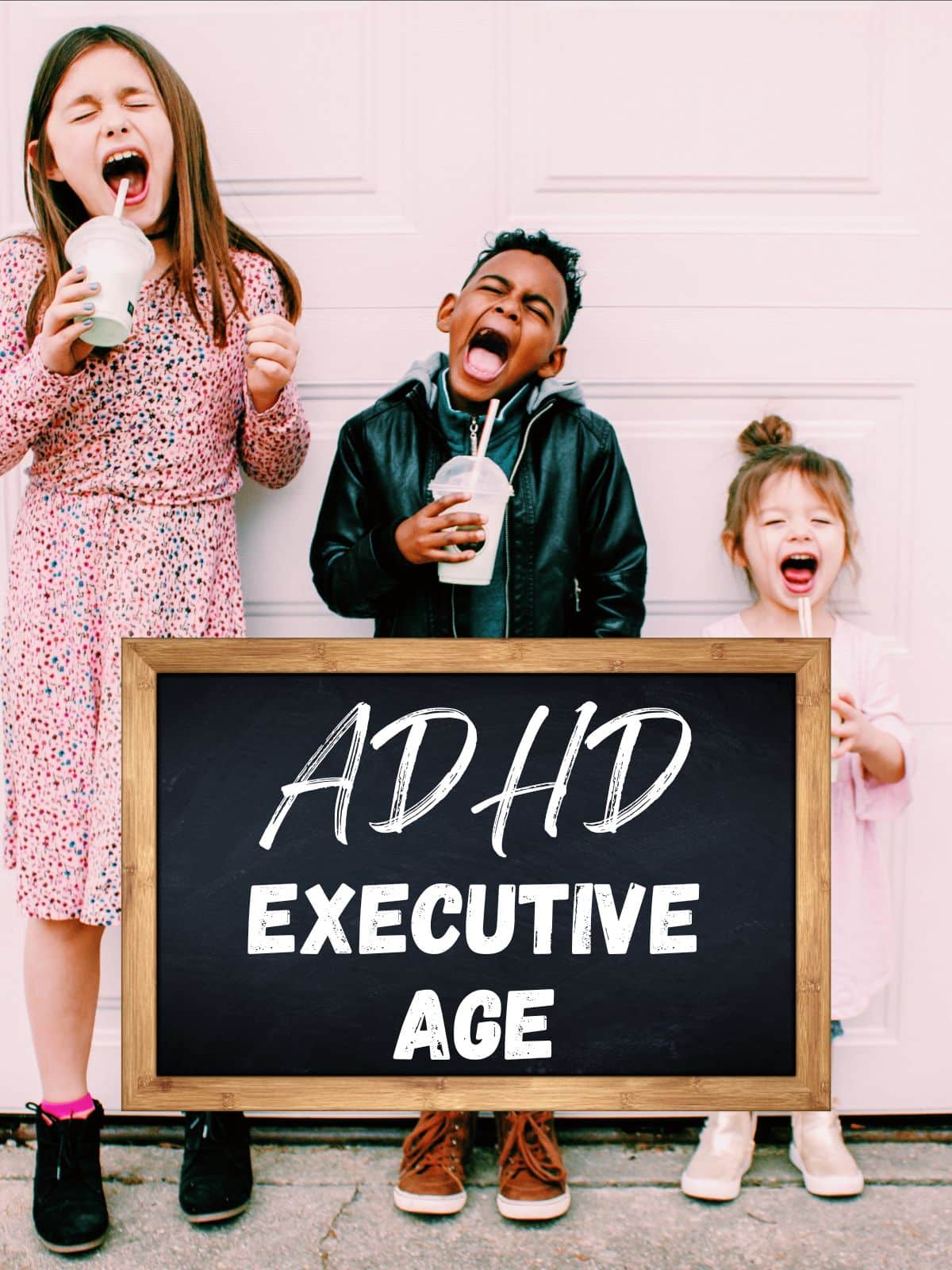
Children with ADHD often exhibit executive function deficits that can appear as up to a 30% lag in their mental age or maturity compared to their peers. They may struggle with organization, planning, time management, and self-control.
What can you do as a parent?
- Provide support and scaffolding to help your child develop executive function skills.
- Change your expectations to be more understanding.
The Science Behind the ADHD Brain
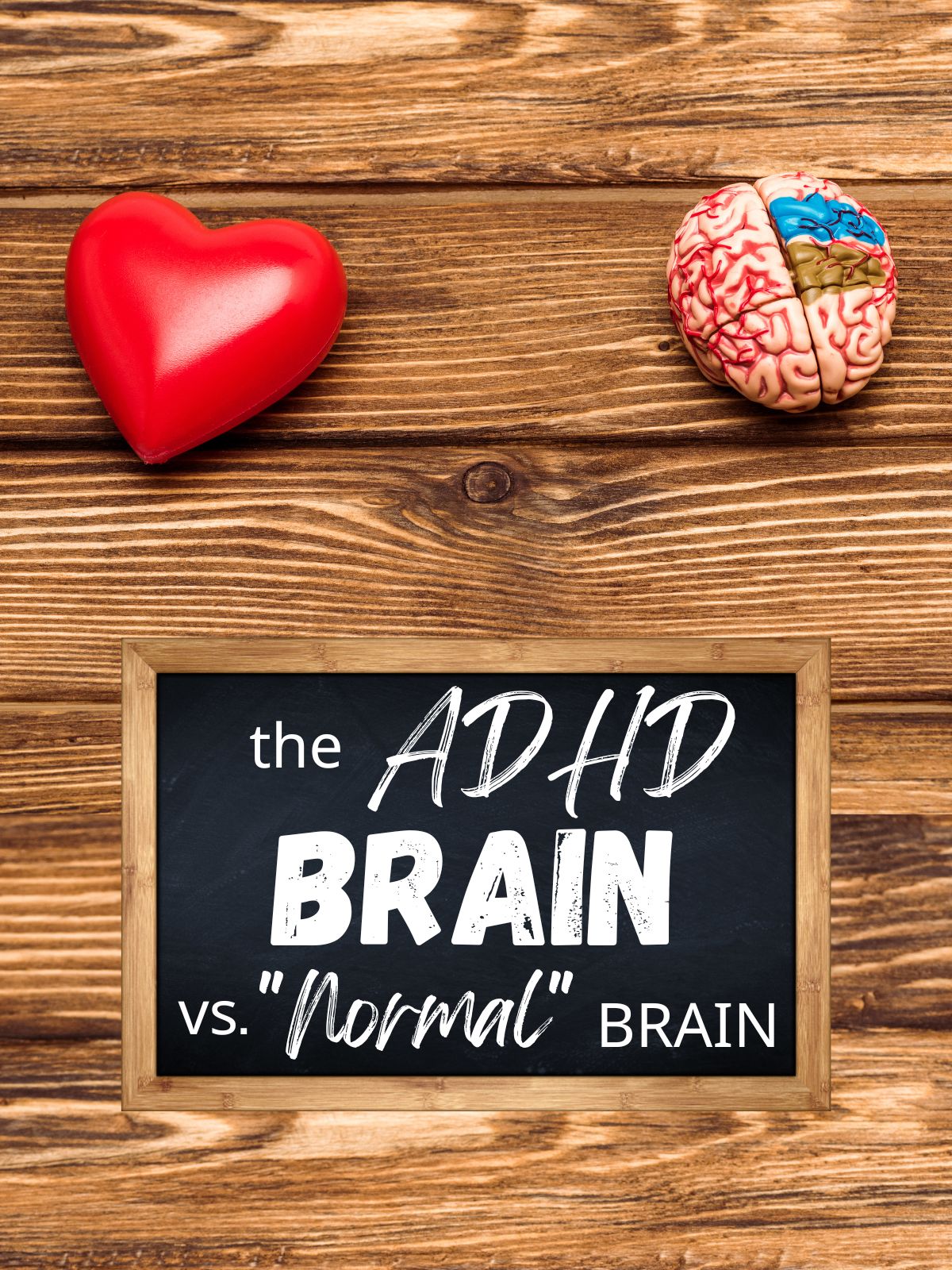
ADHD is believed to involve irregularities in the frontal lobes of the brain, which impact executive functions. There is also evidence of a genetic link, with the condition being more prevalent in children who have a parent or sibling with ADHD.
What can you do as a parent?
- It's essential for parents of kids with ADHD to understand the science behind ADHD. This helps us get to the roots of our child's behavior and explore this, along with wellness strategies that may help.
- Stay informed about ADHD and its developments. This can help you relate to your child's experiences and advocate for them in educational and medical settings.
Wellness Approaches

We love this cookbook to get your child involved in their wellness.
Wellness strategies can play a significant role in managing ADHD symptoms. Regular physical activity, a balanced diet, adequate sleep, mindfulness practices, and stress management techniques can help promote overall wellness and reduce ADHD symptoms.
What can you do as a parent?
- Encourage these wellness behaviors at home.
- Promote a routine that includes regular physical activity and adequate sleep.
- Introduce mindfulness practices suitable for your child's age and interests.
Supplements and Diet
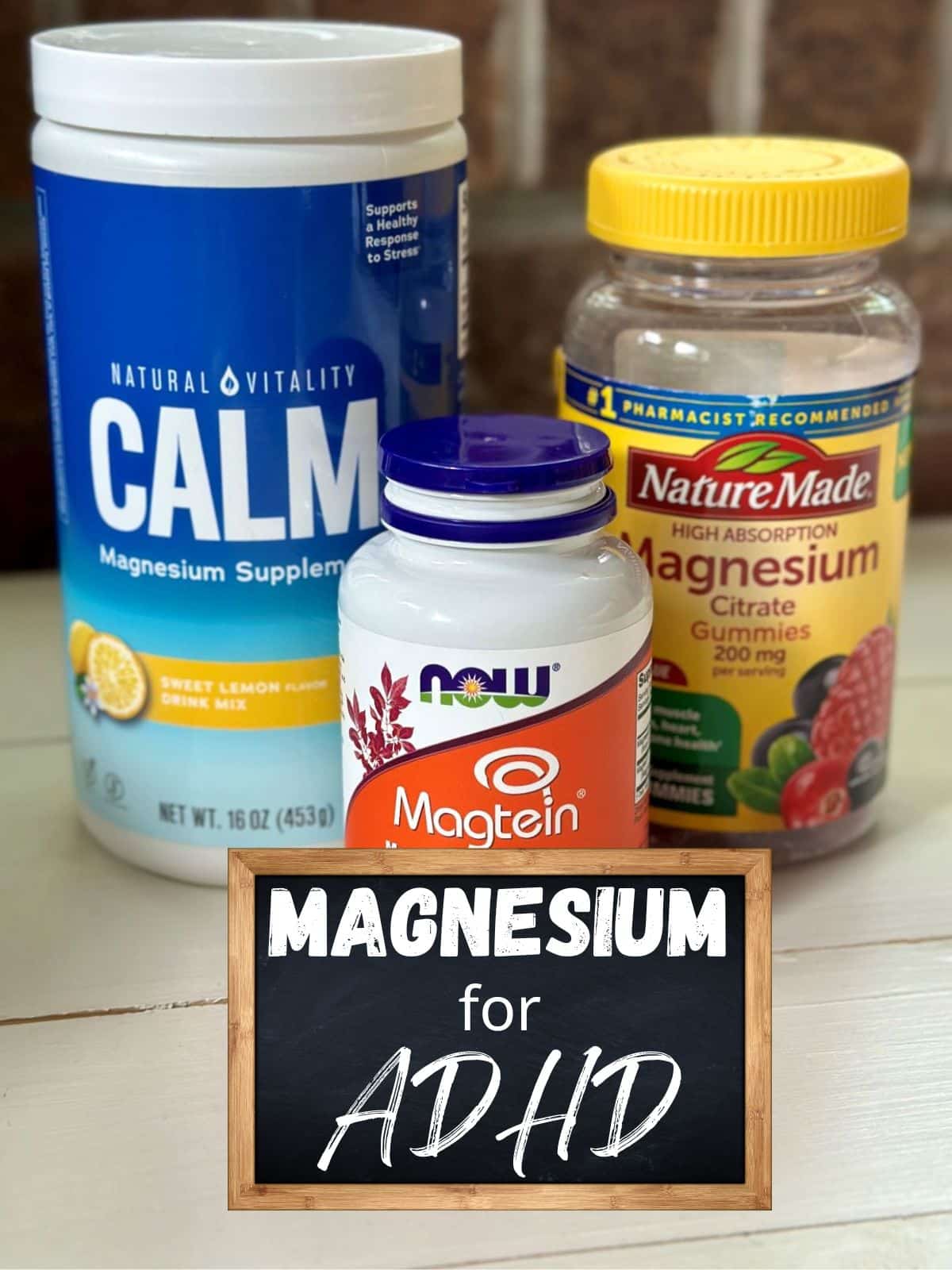
While it's essential to consult with a doctor before trying any new supplement regimen, certain supplements like Omega-3 fatty acids, Zinc, and Magnesium have shown potential benefits for ADHD symptoms in some studies.
What can you do as a parent?
- Your child's doctor can provide medical advice about incorporating these supplements as a treatment option for your child's ADHD symptoms.
- Help your child eat a balanced diet that includes a variety of nutrients.
Gut Health
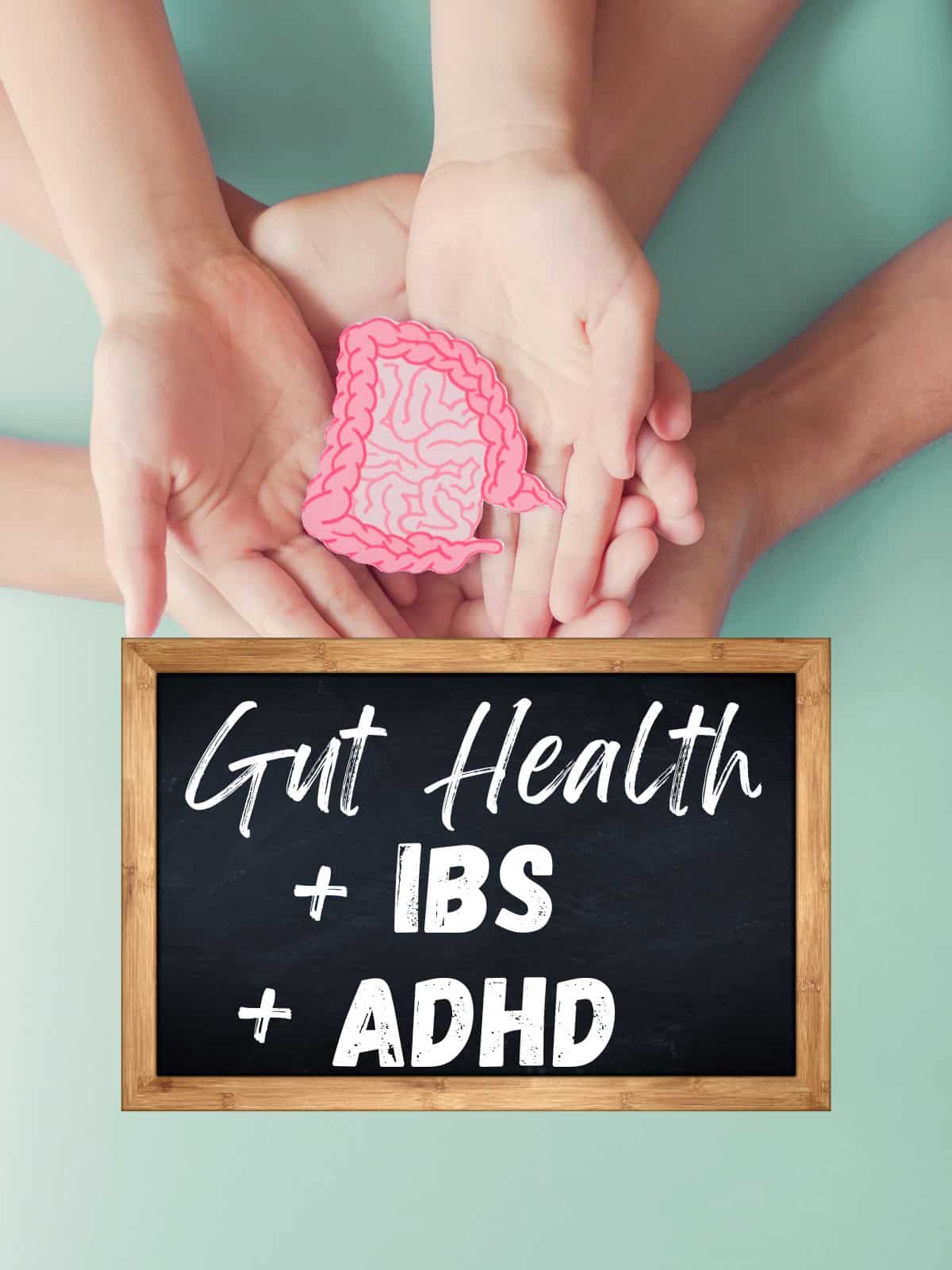
Emerging research suggests a potential link between gut health and ADHD. Some studies indicate that the balance of bacteria in our gut, called our gut microbiome, can impact mental health, including ADHD symptoms.2How gut health affects mental health (optum.com)
What can you do as a parent?
- Support a diverse, nutrient-rich diet that encourages a healthy gut microbiome.
- You may also want to discuss probiotics or other gut health strategies with your child's healthcare provider.
MTHFR Gene Testing
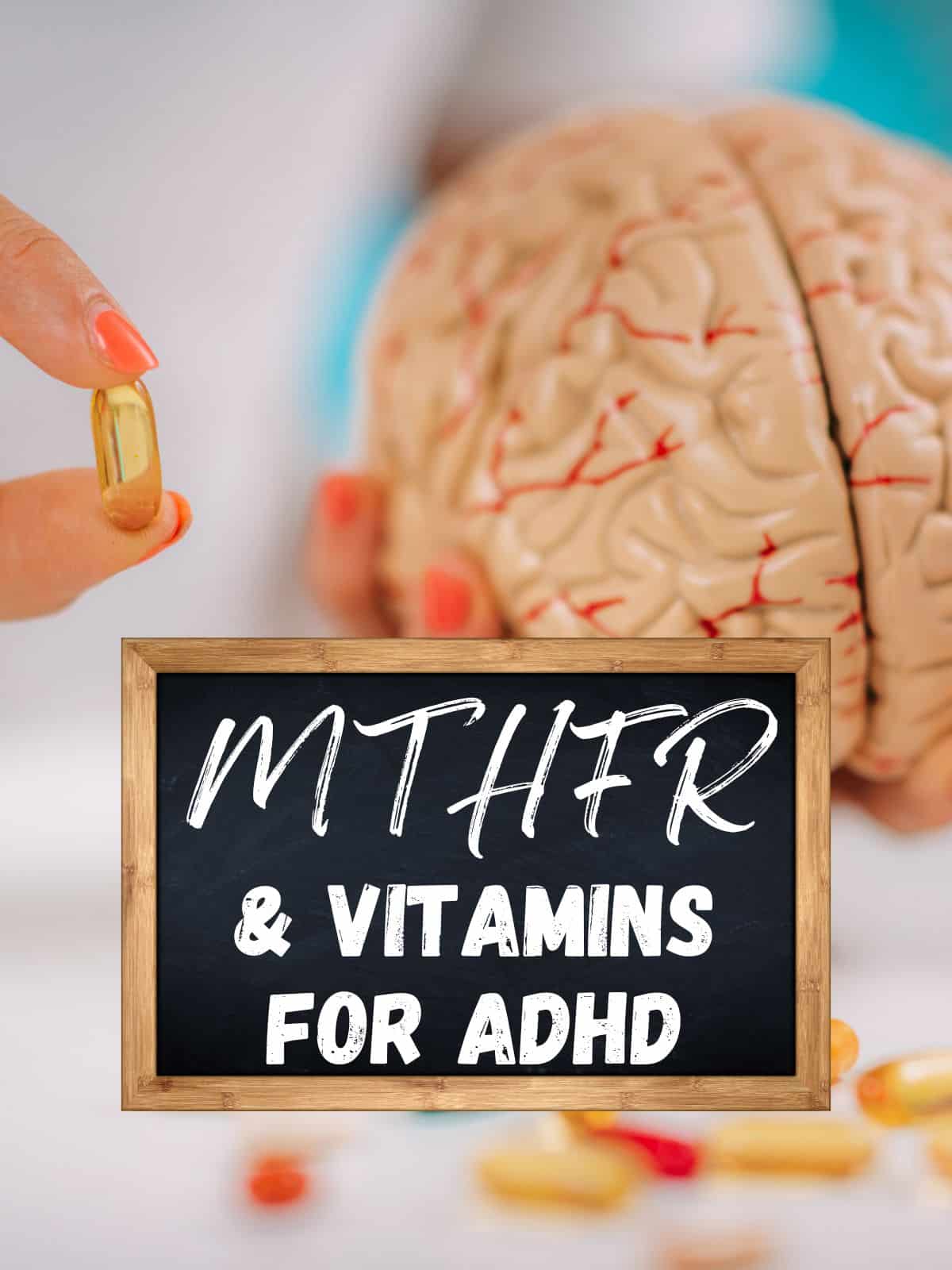
Some people with ADHD have an MTHFR gene mutation, which can affect how our bodies metabolize folate, a type of B vitamin. This can potentially influence ADHD symptoms. Luckily, methylated vitamins like methylfolate can help.
What can you do as a parent?
- Consider discussing MTHFR gene testing and methylated vitamins with your child's healthcare provider.
ADHD Medications
Your child's doctor can help decide if ADHD medication would be an effective treatment for your child.
However, it's important to note that not all doctors may have specialized knowledge in ADHD, and you may feel helpless if your doctor lacks sufficient understanding of the condition.
What can you do as a parent?
- Take an active role in your child's ADHD treatment journey. Research and learn from books like "Finally Focused: the Breakthrough Natural Treatment Plan for ADHD" to explore alternatives to stimulant medication.**
- Educate yourself about the different types of ADHD medications so you can have informed discussions with your child's doctor.
- **We believe that stimulant medication can be a highly successful treatment in some children, but we also think it's essential to look at all choices before making a decision. Remember, you know your child more than anyone, and your input is valuable in making treatment decisions that best suit their needs.
Free ADHD Parenting Resources
Navigating ADHD as a parent can feel like a daunting task. We have resources available on our ADHD blog that can provide guidance and practical tools to make everyday life a bit smoother.
Free Emotional Scale
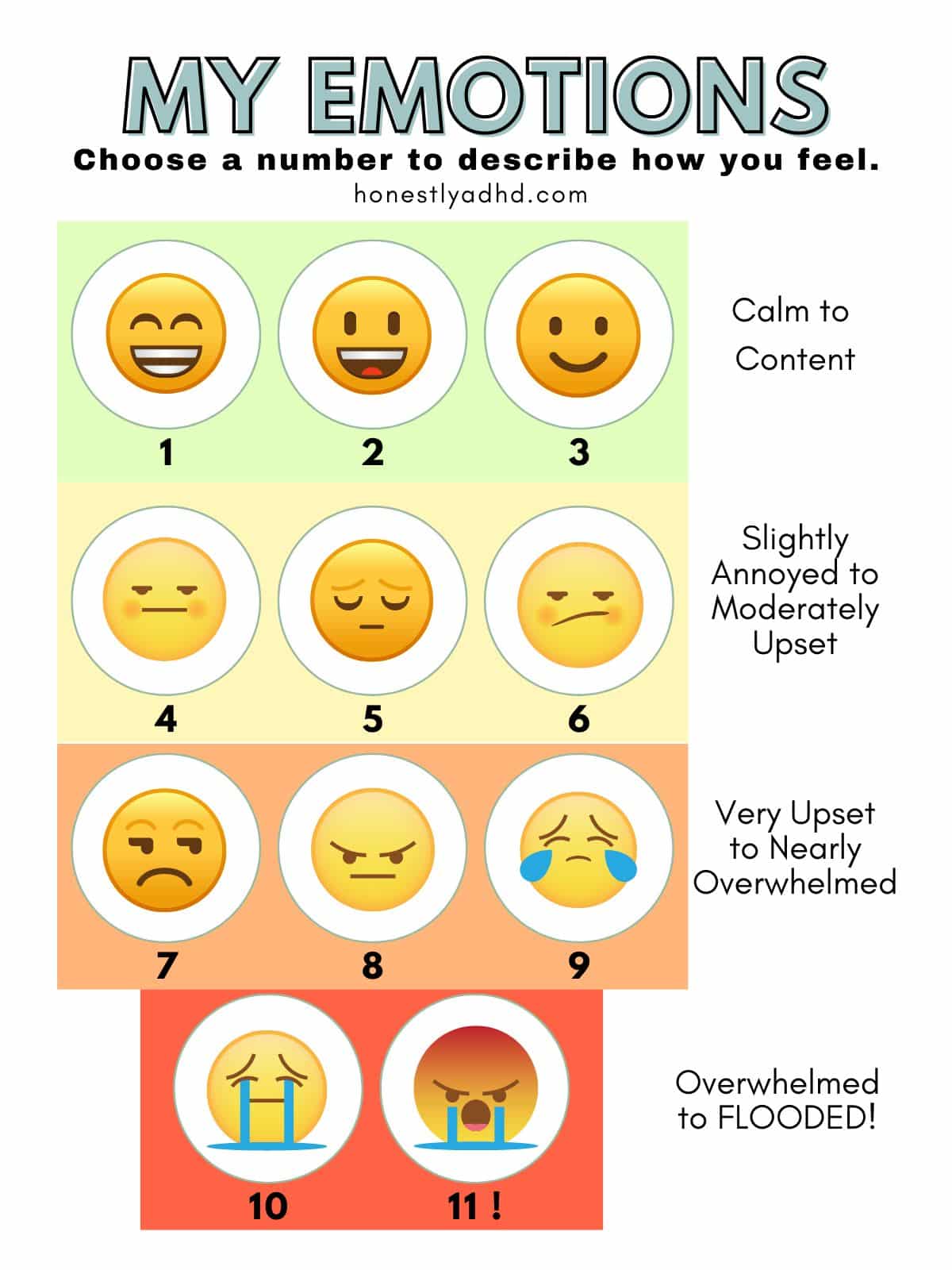
This tool helps children better understand and express their feelings. It can be a game-changer for kids with ADHD who struggle with emotional regulation and have regular meltdowns.
What can you do as a parent?
- Incorporate the emotional scale into your daily routine and encourage your child to articulate their feelings.
- Provide a safe place and respond with empathy and understanding. The whole family can use this.
Free Meditation Exercise Cards
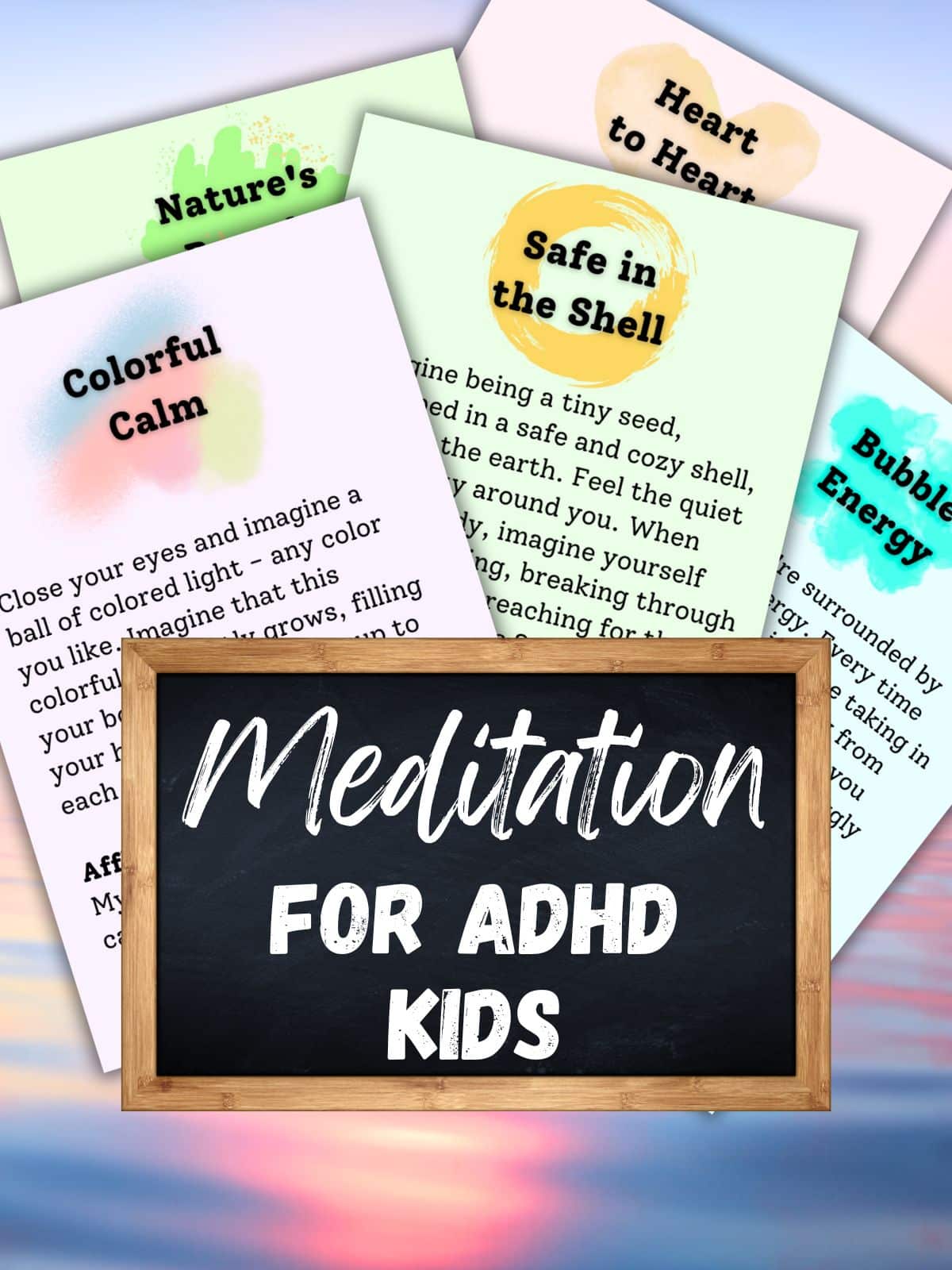
These ADHD-friendly meditation cards offer guided meditations to help your child relax, focus, and manage stress.
What can you do as a parent?
- Introduce these meditation exercises into your child's routine. Start with one short, simple exercise and gradually move to more as your child becomes more comfortable with the practice.
Printable Routines
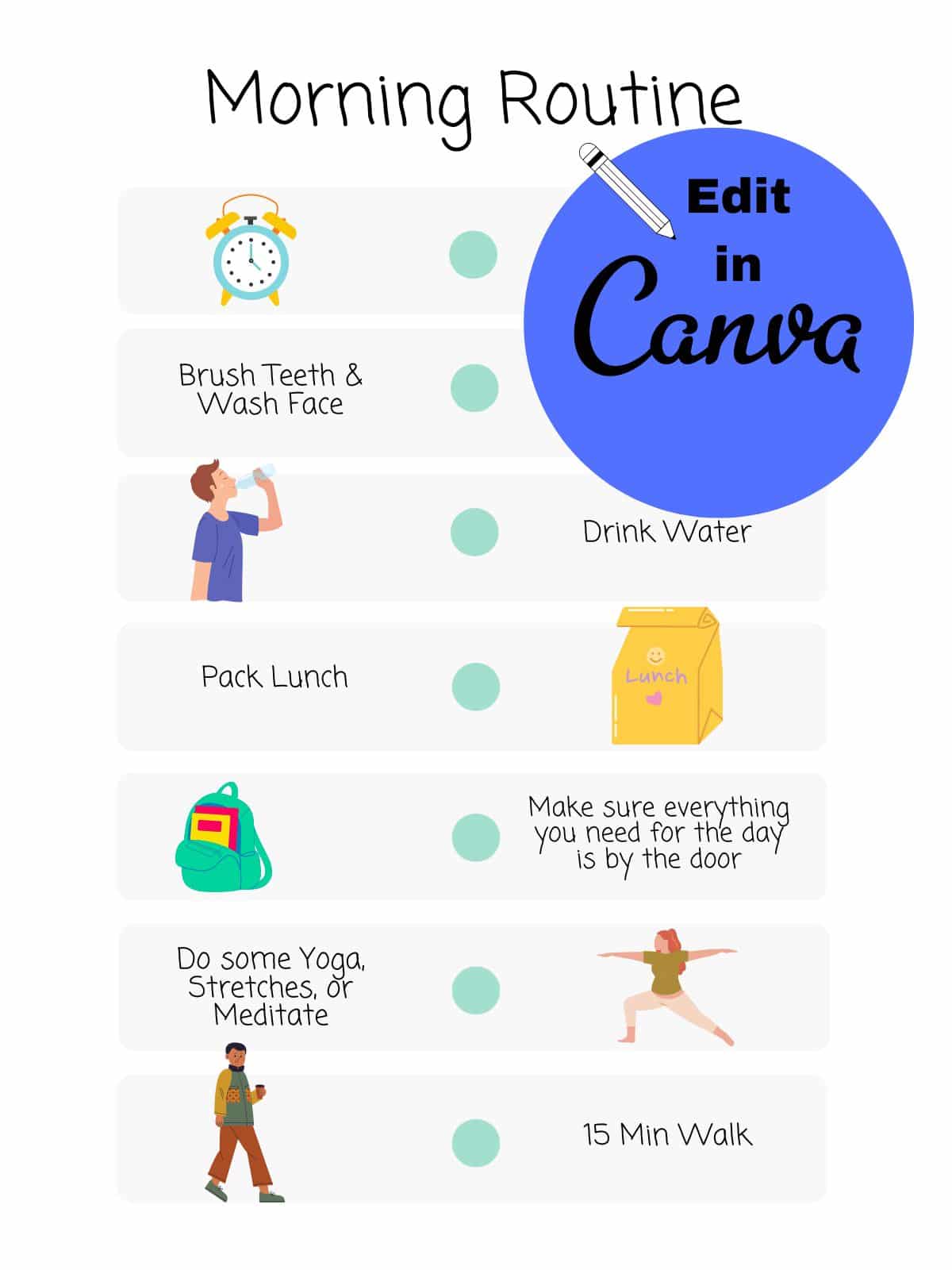
Every parent of a child with ADHD knows that mornings and bedtime can be a challenge. Our free printables provide large visuals to help your child remember the most important things.
These household routines can be customized for the entire family to keep everyone on track.
What can you do as a parent?
- Customize and print out these routines and use them consistently. Adjust them as needed. It may take a few versions to perfect a routine that sticks.
Free Daily Planner
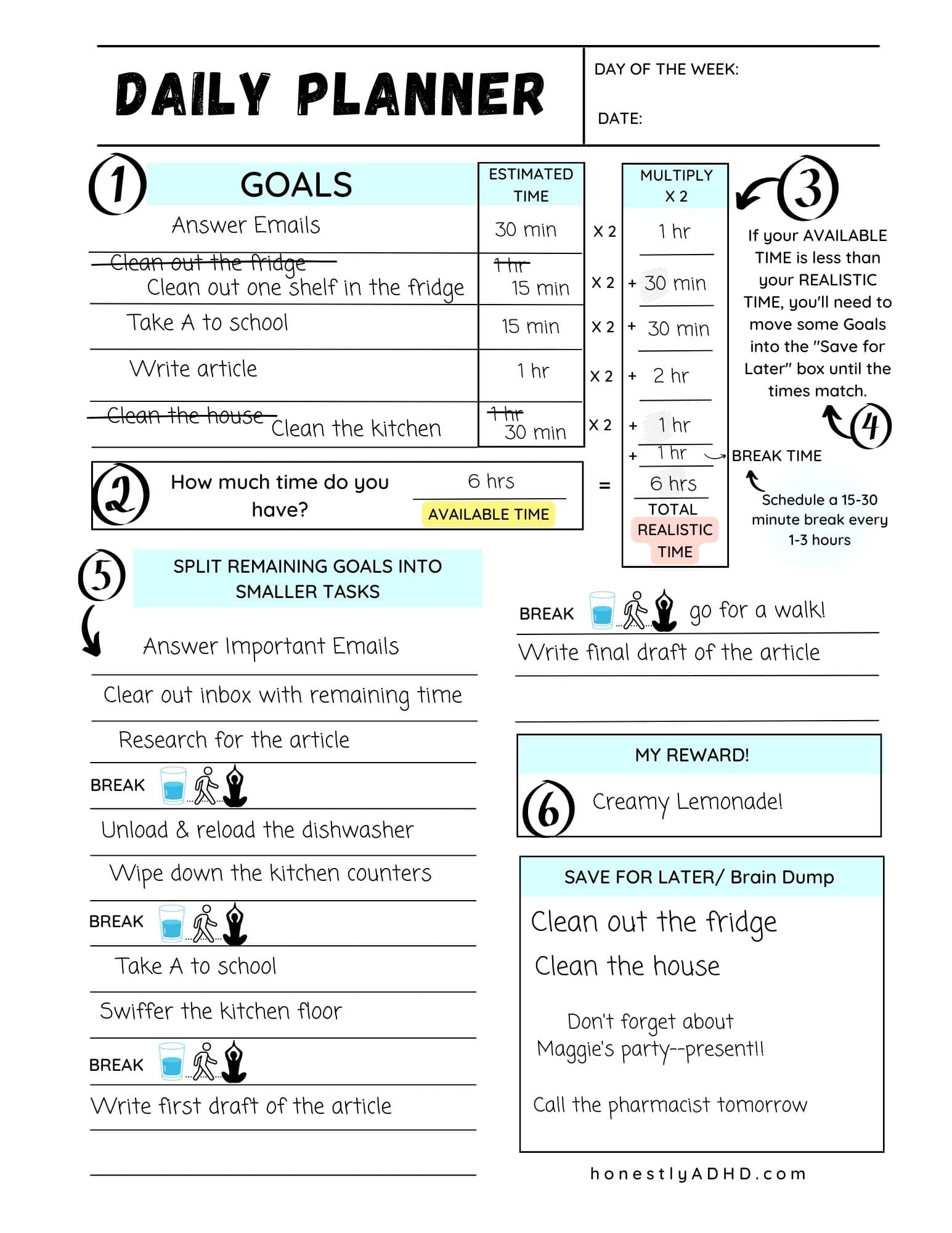
This planner can be a lifeline for kids with ADHD who struggle with time management and organizational skills because it sets realistic expectations. It's designed for the ADHD brain.
What can you do as a parent?
- Encourage your child to use this planner to help them understand time management and realistic goals.
- Help them set daily tasks, prioritize them, and check them off when completed. It's a great way to promote independence and a sense of accomplishment.
Check out our resource center of free printables for more.
Challenges ADHD Children Face
Living with ADHD can present unique challenges for a child. As a parent, understanding these struggles can make a significant difference.
Task Initiation
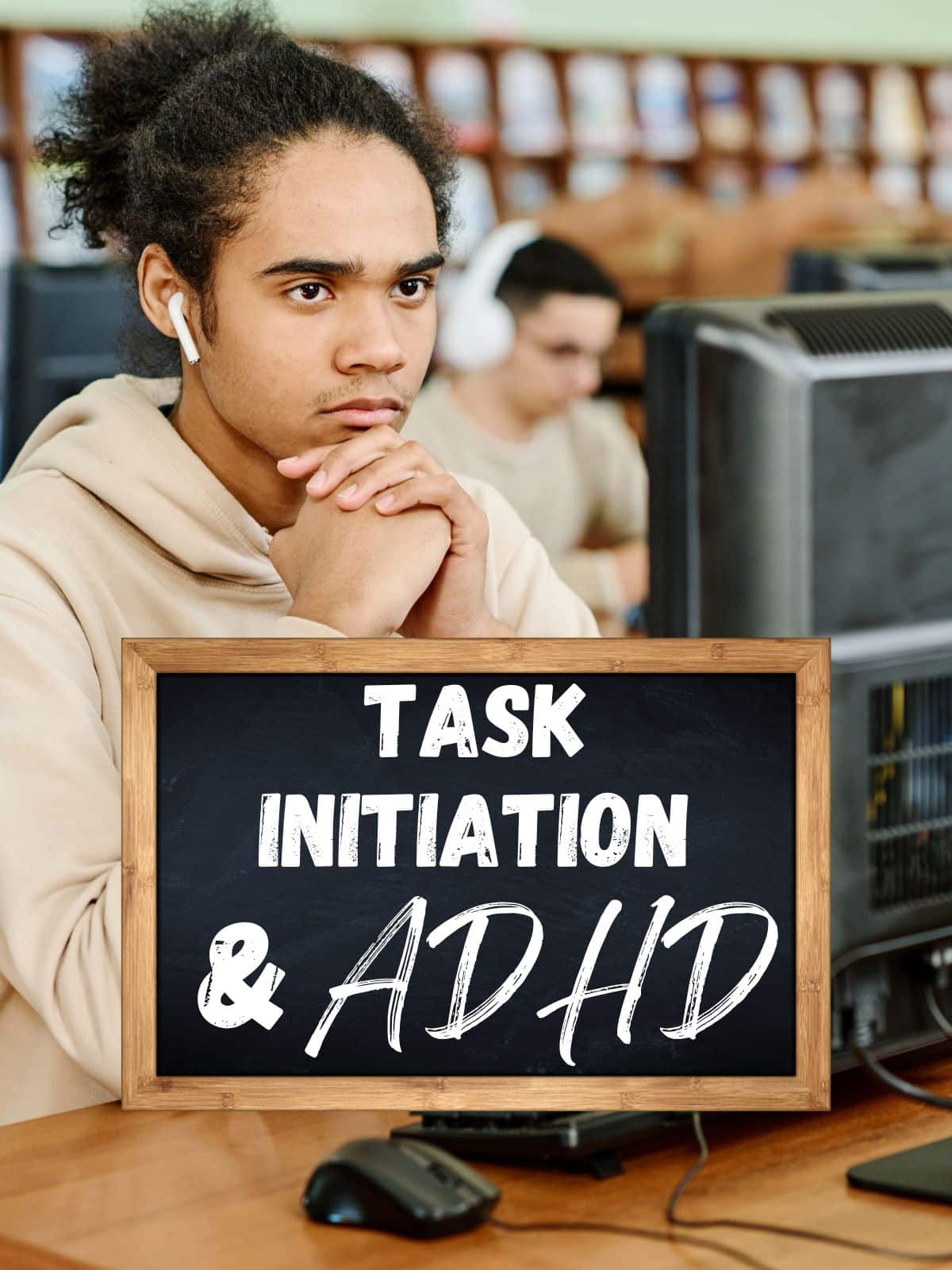
Starting tasks can be a significant challenge for kids with ADHD. They may struggle to kickstart a project, a homework assignment, or even a simple daily task, affecting their productivity and self-esteem.
What can you do as a parent?
- Break down larger tasks into much smaller, manageable steps for your child.
- Celebrate small victories to keep them motivated.
Emotional Regulation & Meltdowns

Kids with ADHD can sometimes have difficulty managing their feelings, especially when handling frustration or disappointment. This can result in unexpected emotional outbursts or difficulty calming down.
These intense meltdowns can occur when they feel frustrated or anxious or lose control.
What can you do as a parent?
- Help your child identify triggers and signs of an impending meltdown.
- Create a safe, quiet space where they can go to regain control.
- Teach your child calming techniques, such as deep breathing or progressive muscle relaxation, or use the free emotional intensity scale shown above.
- Encourage them to put their feelings into words and help them identify alternative responses to frustration.
Social Anxiety
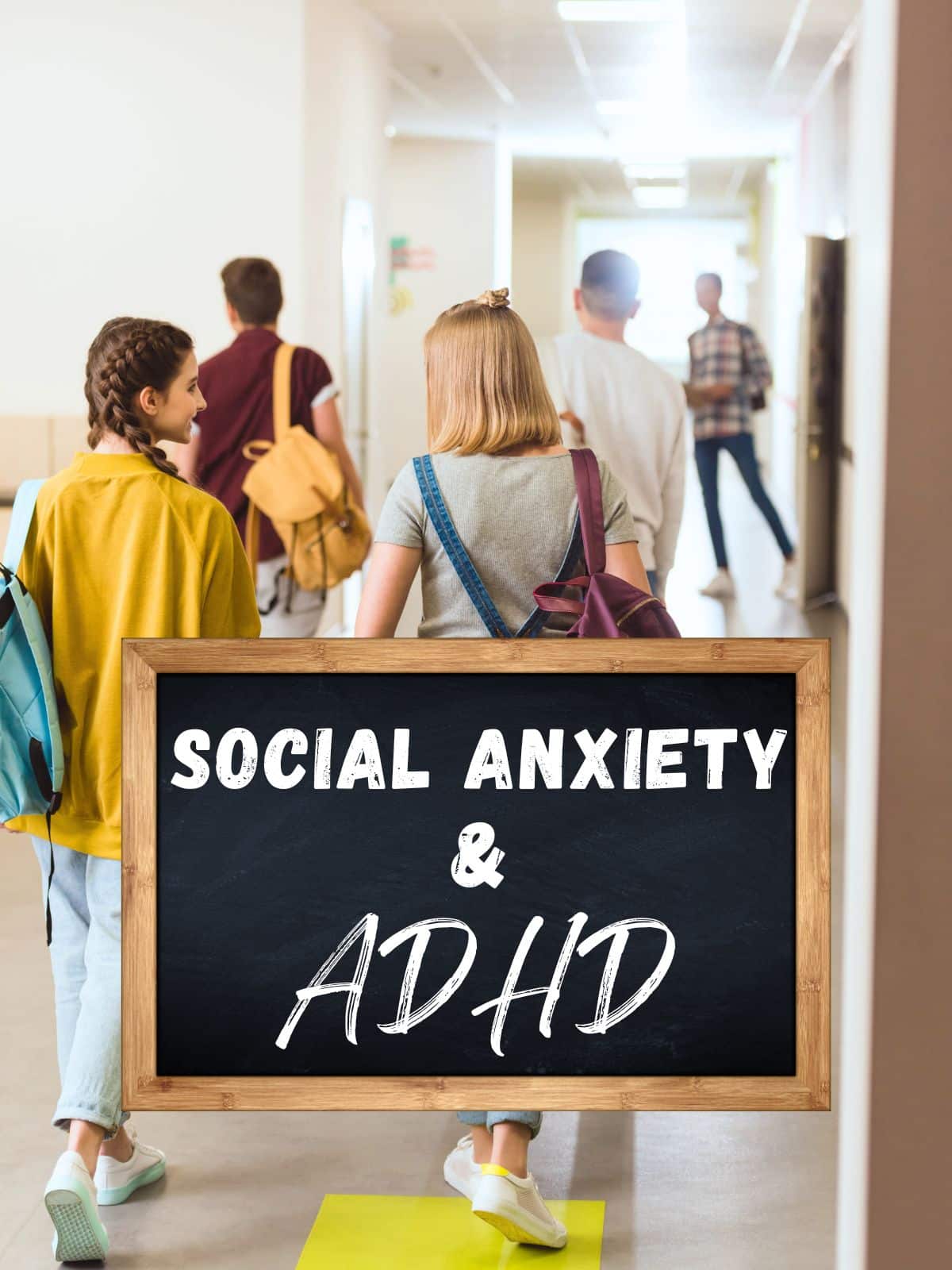
Social skills can be challenging for kids with ADHD. They might fear judgment or rejection due to their ADHD symptoms, leading to social anxiety.
What can you do as a parent?
- Encourage your child to participate in social activities that match their interests.
- Role-play social situations and discuss potential scenarios. Always offer reassurance and support, and consider therapy.
Overthinking
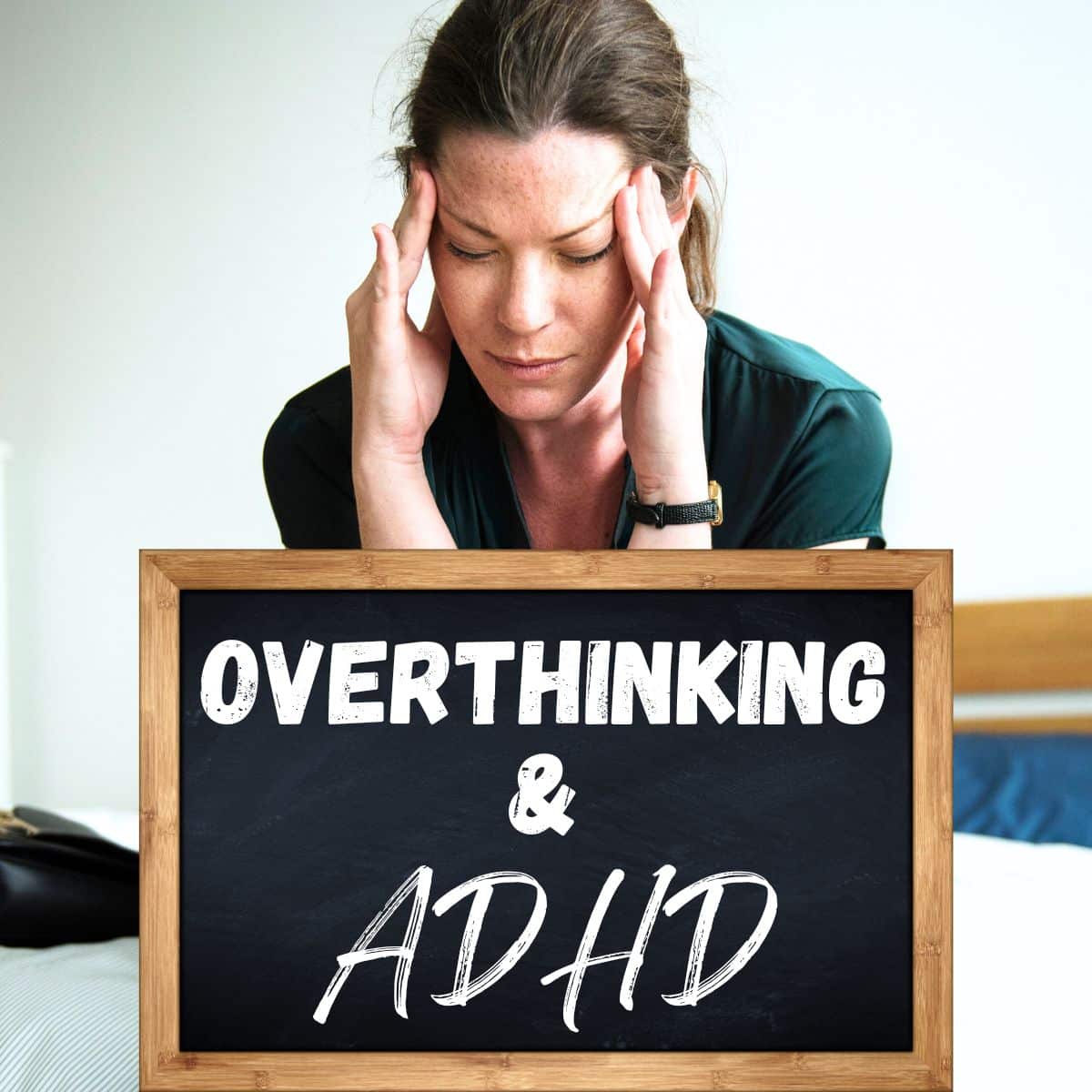
Kids with ADHD can become caught in cycles of overthinking, exacerbating feelings of anxiety and worry. They may not tell you that this is a struggle for them.
What can you do as a parent?
- If your child seems quiet or stressed, encourage them to express their thoughts and worries openly.
- Ask them often about what they are thinking about.
- Help your child break the cycle of overthinking by teaching them mindfulness or meditation techniques.
Mental Health

Calming exercises and sensory toys can help.
ADHD can often co-occur or lead to other mental health conditions such as anxiety, depression, and learning disorders, especially in adult ADHD. But these usually start from problems in childhood.
What can you do as a parent?
- Keep communication lines open and foster a non-judgmental home environment.
- Your knowledge and understanding will be the most helpful of all. If your child exhibits signs of other mental health conditions, seek professional help.
ADHD and Lying

It's not uncommon for kids with ADHD to lie, often to avoid punishment or negative consequences. However, this can also be a reflection of their struggle with impulsivity and difficulties predicting outcomes.
What can you do as a parent?
- Approach the situation with understanding. Teach your child the value of honesty and how it builds trust.
- Use these instances as teaching moments rather than punishment opportunities.
Problems at School
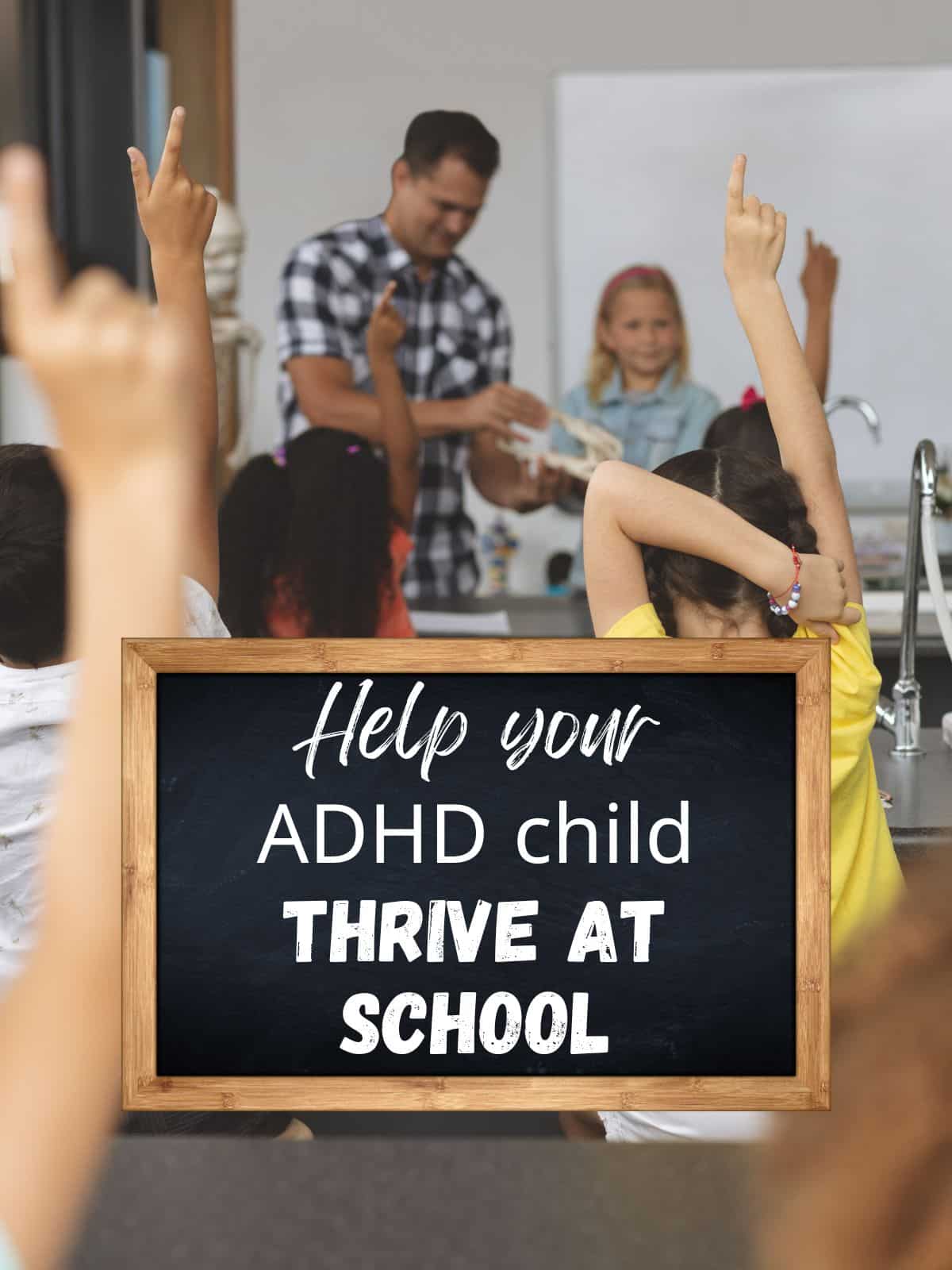
Children with ADHD may struggle in a traditional school setting. Difficulty paying attention, impulsivity, disorganization, and trouble with time management can all impact academic performance. Without the proper support, a child with ADHD may risk falling behind.
What can you do as a parent?
- Advocate for your child. Keep an open line of communication with your child's teacher and school staff.
- Help your child with organization and time management skills at home, and consider seeking additional academic support if needed, like Coachbit virtual coaching for ADHD kids.
Hyperactivity
What can you do as a parent?
- Regular physical activity can help manage hyperactivity.
- Decrease television time and encourage playtime outside.
- A mini-trampoline, scooter, or bike can provide opportunities for safe, active play.
Impulsivity

Acting on the spur of the moment without thinking through the consequences is common in children with ADHD.
What can you do as a parent?
- Prioritize self-care and learn about dopamine and serotonin differences in your ADHD kids that affects impulse control.
Working Memory
This is the ability to hold information in the mind and work with it. Kids with ADHD often have working memory deficits, affecting their ability to follow instructions or complete tasks.
What can you do as a parent?
- Use tools such as lists, calendars, and apps to help your child keep track of tasks and responsibilities.
- Repeat information and instructions, and ask your child to do the same to reinforce memory.
- Understand that this is not something your child can control, but there are ways you can help.
Attention and Focus

We love this cube focus timer.
Children with ADHD may get distracted easily and struggle to sustain attention. This doesn't mean they can't pay attention. It just means they have trouble using their attention efficiently unless they are very interested in the subject.
What can you do as a parent?
- Create a quiet, clutter-free space for your child to work or study. Break tasks down into steps and provide frequent, short breaks to help maintain focus.
- Regular breaks can help recharge your child, improving their energy levels and productivity.
ADHD Coaching for Parents
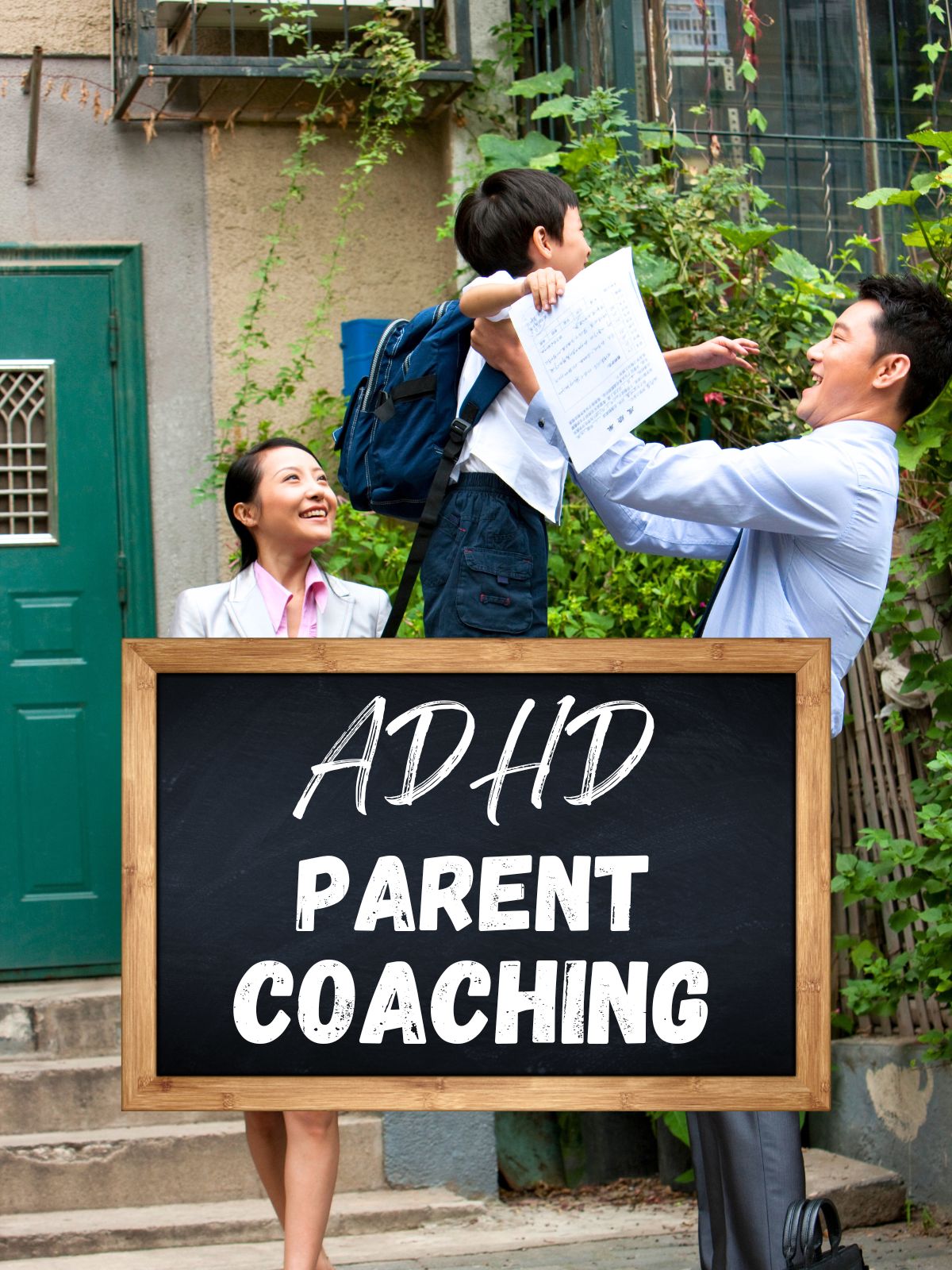
Sometimes, even the most dedicated parents can benefit from a bit of coaching.
ADHD coaching is a collaborative process where a coach works with you to better understand your child's unique brain wiring and behavior patterns. This type of coaching equips you with practical strategies to help with behavior management and provides tools to help your child thrive with ADHD.
What can you do as a parent?
- Consider investing in ADHD coaching. A coach can help you develop strategies and learn new ways to teach your child patience and self-control tailored to their needs.
- Finding time for in-person coaching sessions can be tough, but many ADHD coaches and behavioral therapists offer video conferencing.
- This can provide you with ongoing guidance as you navigate the complexities of ADHD parenting.
What to Look for in an ADHD Coach?
When looking for an ADHD coach, it's important to find the right match for your family.
- Some parents might prefer a coaching program that draws from the coach's professional experiences, like those offered by Cindy Goldrich at PTS Coaching.3PTS Coaching - ADHD Education, Training and Support for Parents
- Others may prefer working with behavioral therapists or licensed professional counselors who specialize in ADHD.
- Explore your options and consider your child's specific challenges and needs.
Coaching Yourself
As a parent, you can also take the reins, become your own coach, and improve your parenting skills. This involves self-education about ADHD, observing your child's patterns and behaviors, and experimenting with different strategies until you find what works best for your child.
What can you do as a parent?
- Engage in continuous learning about ADHD. Read online forums, attend webinars, participate in support groups, and remain open-minded about various strategies and approaches.
- Ask yourself, what does your child with ADHD need? Dig deep into your child's problems and learn the best way to help them.
- Remember, you are the expert on your child, and with knowledge and understanding, you can become an effective coach for them.
Behavioral Parenting Training
Behavioral parent training is an evidence-based approach that teaches parents specific techniques to effectively manage their child's behavior. It helps parents learn how to reinforce positive behaviors, set clear expectations and boundaries, and use effective discipline strategies.
What can you do as a parent?
- Explore parent training programs or workshops. These programs can provide you with valuable skills and techniques to manage challenging behaviors and promote positive interactions with your child.
Parenting a child with ADHD can be an intricate dance of love, patience, and understanding.
The goal is to create a supportive and understanding environment where your child can flourish. Remember, it's not about 'fixing' your child but about guiding, supporting, and helping them navigate their world with ADHD.
The key to successful ADHD parenting is compassion and consistency. Try different strategies, stick with what works, and be patient as your child learns!
It can make a world of difference in helping families overcome the challenges of ADHD and enjoy a happier, more fulfilling family life.
References:
- 1
- 2
- 3

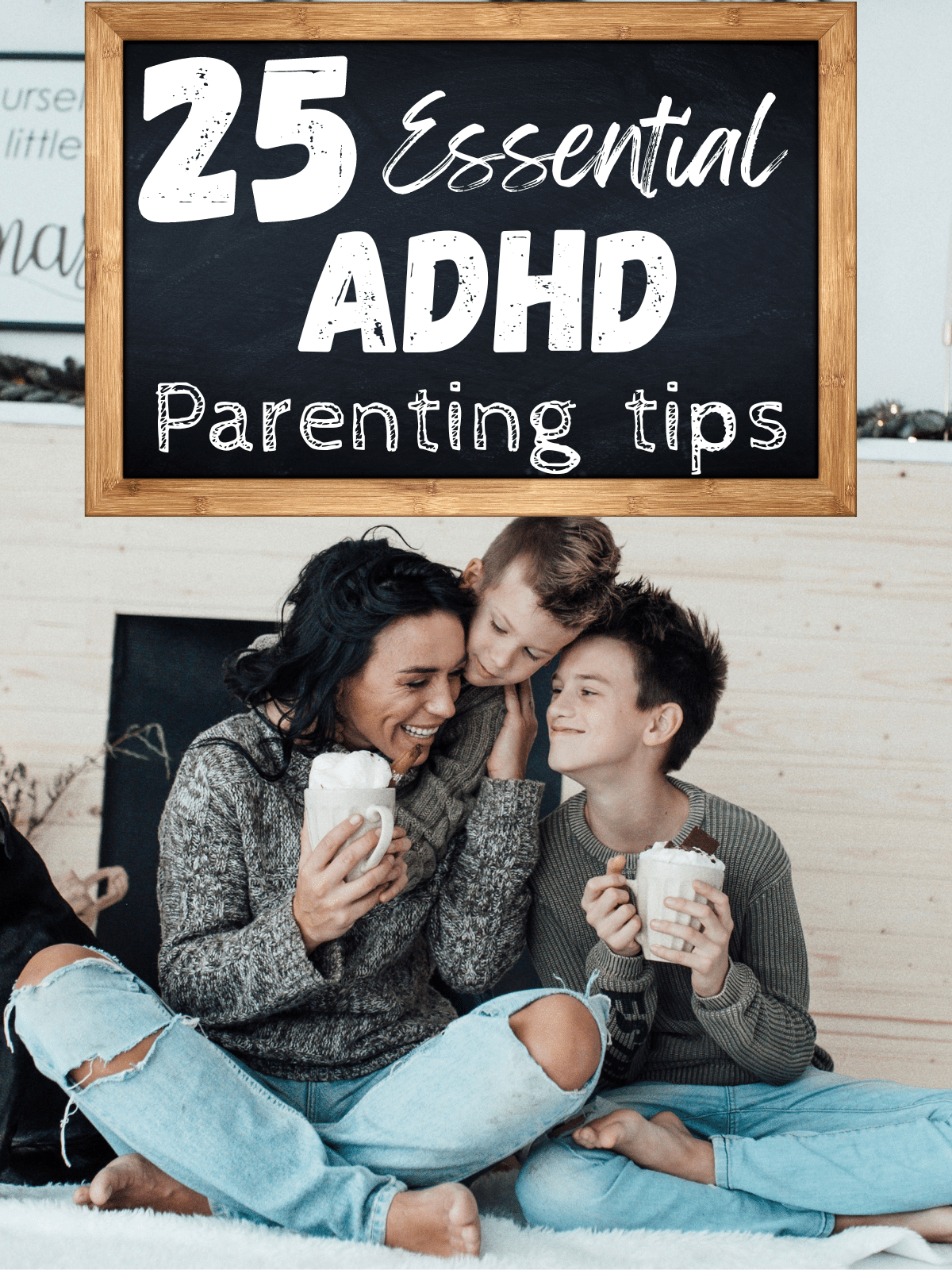





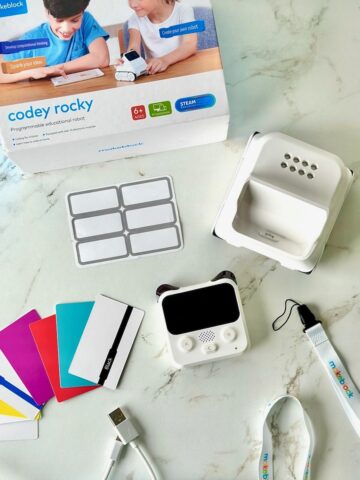
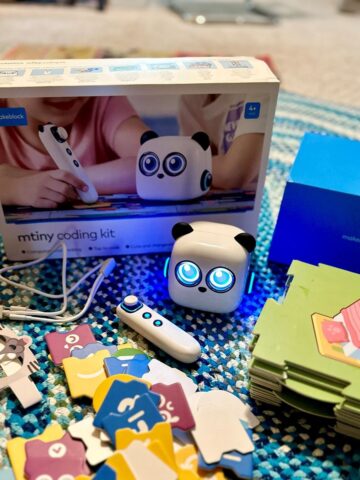


We'd love to hear from you